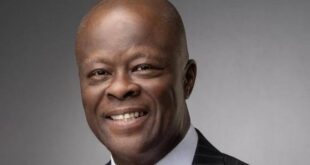The World Bank Group has said that Nigeria’s human capital development ranks among the worst globally.
The Washington-based bank stated this in a new report titled, “COVID-19 and Nigeria’s human capital crisis,” where it noted that Nigeria’s ambitious poverty-reduction targets hinge on developing human capital.
According to the report, learning poverty, which captures 10-year-olds’ ability to understand simple sentences or perform basic numeracy tasks, likely proliferated in Nigeria during the pandemic.
While learning poverty cannot be estimated directly for Nigeria due to lack of data, it now affects up to 70 per cent of children in low- and middle-income countries, the World Bank notes.
The report read in part, “Even prior to COVID-19, Nigeria had some of the worst human capital outcomes in the world. According to the 2020 Human Capital Index (HCI)—based on a range of markers of health and education including infant mortality, expected years of schooling, sand stunting—a child born in Nigeria that year will grow up to achieve just 36 percent of the productivity he or she could have attained with full health and education. This was below the average for sub-Saharan Africa of around 40 percent. Just six countries had lower HCI scores globally.”
The report further noted that the direct health effects of COVID-19 itself threatened Nigeria’s human capital.
The country recorded its first case of COVID-19 on February 27, 2020 and has subsequently already suffered at least four distinct waves of infection, peaking around June 2020, January 2021, August 2021, and January 2022.
However, recorded case numbers in Nigeria generally remained lower than in the Americas, Europe, and Asia.
It said the COVID-19 crisis threatens future generations further through its impact on education. School closures during 2020 reduced children’s attendance rates even after reopening, especially among older children.
According to the bank, as the COVID-19 pandemic abates, rebuilding human capital represents a key immediate policy priority for Nigeria.
It further said recouping the learning losses experienced during the pandemic was also a crucial element of rebuilding human capital. Nigerians themselves favour expanding in-person learning—especially by adding more hours to the school day—to help children catch up.
According to a child education expert, Emmanuella Chinelo, the assertion of the World Bank on Nigeria’s learning poverty rate is not unconnected to why most Nigerian adults are unable to reach their full learning potential, which ultimately translates to the poor human capital development statistics.
She, however, noted that in very rare cases, a child’s inability to reach full learning potential before the age of 10 might not produce the conventional effects seen in most people who fall into that bracket
She said, “Actually. It is not always the case, even though the right thing for parents to do is to have learning support systems for their kids, because if they don’t do that, most of them struggle. There’s a 10-year old boy I’m teaching now, during the lockdown they discovered that he couldn’t read well, and he was already in year 4. It’s a struggle, even till now, because he already missed out on the foundation. His learning is actually impaired. It’s not always the case, but most kids I’ve seen usually have that impaired learning.”
 The Commerce Africa African Reneissance
The Commerce Africa African Reneissance


